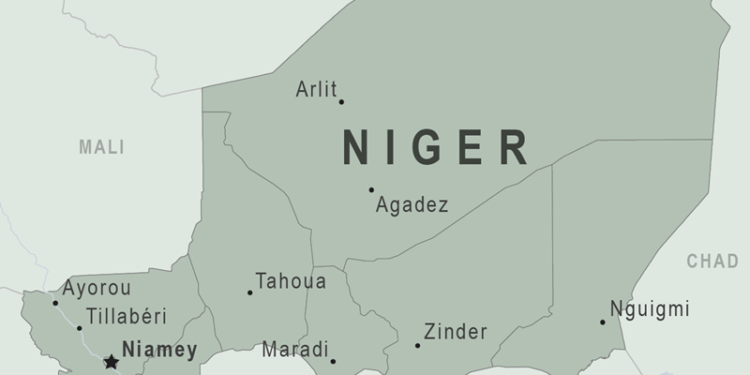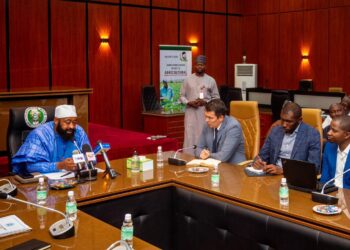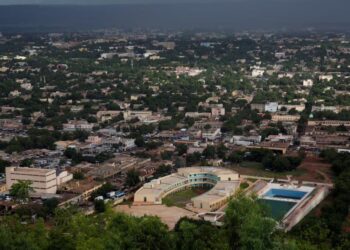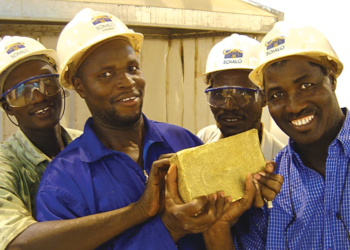Niger is a landlocked country in West Africa, with a population of about 20 million. The country is on the border between Sahara and Sub-Sahara region. The capital is Niamey. Uranium and oil production are cornerstones of the economy, but agriculture is an important source of export earnings. Niger’s climate is hot and arid. Farming centres upon small-scale family farms which produce both rainfed cereals and vegetables and irrigated crops, including onions, sesame and cowpeas.
Niger covers parts of the Sahara and the dry Sahel region to the south. The country is surrounded by Libya, Chad, Nigeria, Benin, Senegal, Mali, and Algeria. The country takes its name from the Niger River, which flows through the southwestern part of its territory. The name Niger derives in turn from the phrase gher n-gheren, meaning “river among rivers,” in the Tamashek language. The official language is French. This is inherited from the colonial period and serves as an administrative language. The country has eight languages that are also classified as national languages.
One of the world’s hottest countries is Niger. All year long, the average temperature is high, ranging from 81 to 84 °F (27 to 29 °C). The afternoon high in May, the warmest month, is often around 100 °F (38 °C). The amount of rainfall is unpredictable and little. The extreme south receives 31 inches (79 centimeters) of rainfall on average each year, whereas the northern Saharan parts receive less than 4 inches (10 centimeters). Droughts are common, and annual rainfall varies greatly.
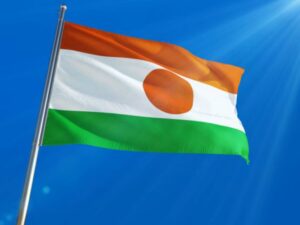
Copyright: iStock
Evidence suggests that humans have lived in Niger for nearly 60,000 years. Experts have concluded that humans inhabited what then became the desolate Sahara Desert of northern Niger, then moved to huge grasslands in around 7,000 BCE. However, it’s likely humans have lived here from even earlier. In neighbouring Chad, researchers found the Australopithecus bahrelghazali remains, dating back 2-3 million years. From the 10th to 18th centuries, Niger was part of a handful of West African empires, including Songhaï, Mali and Kanem-Borno and Mali. It played a prominent role in the gold, salt and slave trade. Then came the French in 1890. It remained a French colony until 1958 when it became an autonomous republic of the French Community. Niger gained independence in 1960.
The largest linguistic group is formed by the Hausa, whose language, also spoken in Nigeria, is one of the most important in western Africa. A large percentage of the inhabitants of Niger understand Hausa, which possesses an abundant literature that has been printed in Latin characters in Nigeria. Songhai is the second most important language; it is also spoken in Mali, in northern Burkina Faso, and in northern Benin. In Niger itself it is divided into various dialects, such as Songhai proper, Zarma, and Dendi. The language of the Fulani is Fula; in Niger it has two dialects, eastern and western, the demarcation line between them running through the Boboye district. Tamashek is the language of the Tuareg, who often call themselves the Kel Tamagheq, or Tamashek speakers. The language is also spoken in Algeria and Mali and possesses its own writing, called tifinagh, which is in widespread use. Kanuri is spoken not only in Niger but also in Cameroon and Nigeria.
Staple foods include millet, rice, corn, and sorghum, and dishes often feature ingredients like peanuts, okra, and yams. Men often wear flowing robes called “boubous,” while women wear brightly patterned wrappers known as “pagne. Zinder, the second-largest city in Niger, is famous for its traditional architecture. The old quarter of Zinder features intricately designed mud-brick houses and is a UNESCO World Heritage site. During festivals and celebrations, locals showcase their horsemanship skills and compete in exciting races.
Mohamed Bazoum was elected president in the December 2020 and February 2021 elections. He was the first to democratically succeed his predecessor. But on July 26, 2023, members of his presidential guard dismissed him, justifying their decision by saying they wanted to avoid further economic and security problems. The coup’s aftermath brings a high potential for domestic unrest and regional conflict, a surge in militant activities, democratic backsliding and restriction of civil liberties, and severe socio-economic consequences due to sanctions. Furthermore, the military junta has not consolidated its power grab and faces strong opposition by many international stakeholders. Bazoum not only enjoys support from the international community but also from a large segment of the population across Niger, with signs of supporters’ counter-mobilizing for mass demonstrations against the junta.
The Air and Ténéré Natural Reserves is the largest protected area in Africa, spanning a whopping 7.7 million hectares. The area encompasses a volcanic rock mass, as well as a staggering variety of plant species and wild animals. Its isolation and very minor human presence mean that wildlife species that have been eliminated elsewhere can survive here. For instance, it’s home to three Red List antelopes: the Dorcus gazelle, Leptocere gazelle and the Addax. It’s also home to a handful of fox species and the cheetah.
Islam in Niger accounts for the vast majority of the nation’s religious adherents. Islam in Niger, although dating back more than a millennium, gained dominance over traditional religions only in the 19th and early 20th centuries, and has been marked by influences from neighboring societies. The beautiful Grand Mosque of Niamey is a prominent landmark, known for its distinctive minarets, is a symbol of Islamic architecture in Niger.















































